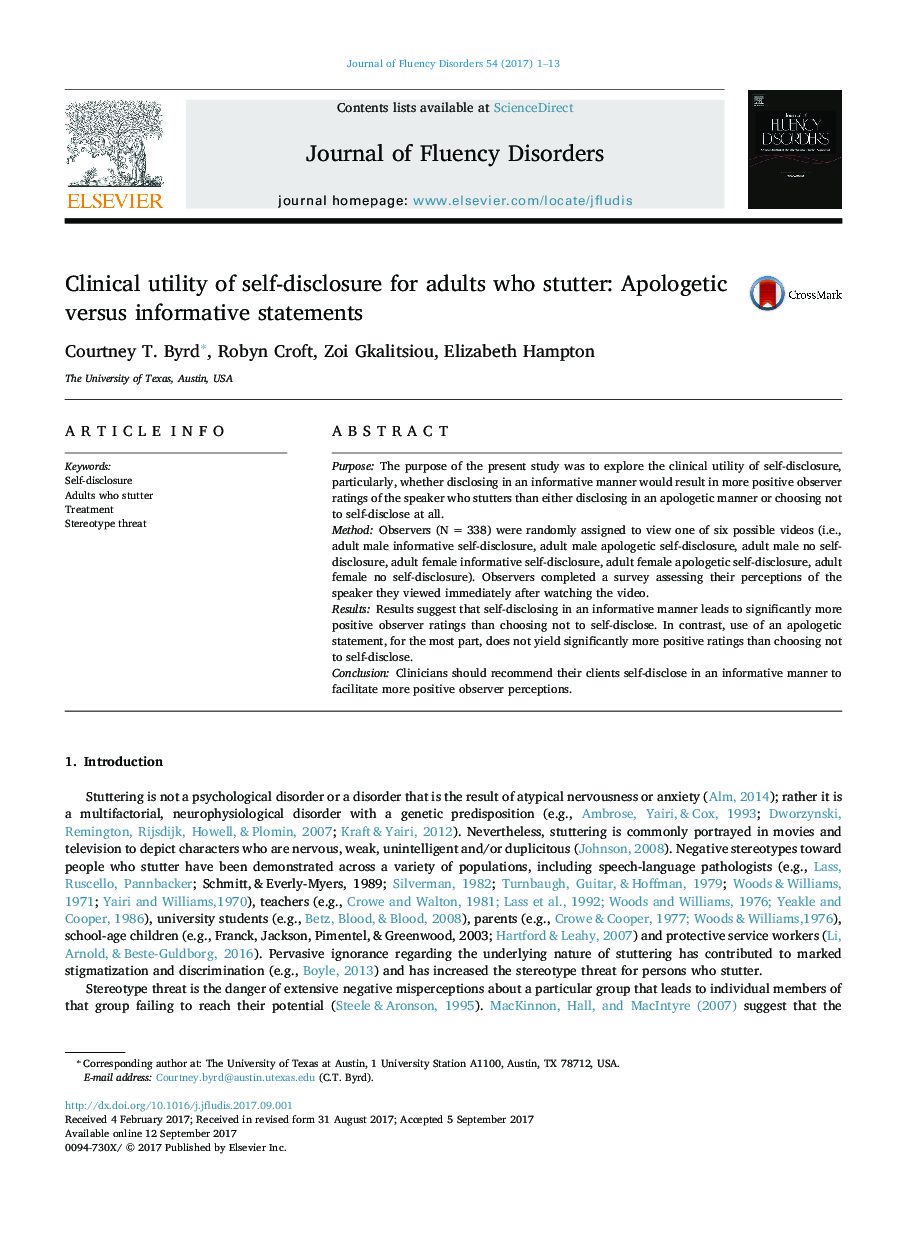| Article ID | Journal | Published Year | Pages | File Type |
|---|---|---|---|---|
| 5039133 | Journal of Fluency Disorders | 2017 | 13 Pages |
â¢Explored whether self-disclosure positively influence observers' perceptions of adults who stutter.â¢Compared observers' ratings of speakers using apologetic and informative statements and speakers who did not self-disclose.â¢Self-disclosing in an informative manner yields more positive observer ratings than choosing not to self-disclose.â¢Use of an apologetic statement, for the most part, does not yield more positive ratings than choosing not to self-disclose.
PurposeThe purpose of the present study was to explore the clinical utility of self-disclosure, particularly, whether disclosing in an informative manner would result in more positive observer ratings of the speaker who stutters than either disclosing in an apologetic manner or choosing not to self-disclose at all.MethodObservers (NÂ =Â 338) were randomly assigned to view one of six possible videos (i.e., adult male informative self-disclosure, adult male apologetic self-disclosure, adult male no self-disclosure, adult female informative self-disclosure, adult female apologetic self-disclosure, adult female no self-disclosure). Observers completed a survey assessing their perceptions of the speaker they viewed immediately after watching the video.ResultsResults suggest that self-disclosing in an informative manner leads to significantly more positive observer ratings than choosing not to self-disclose. In contrast, use of an apologetic statement, for the most part, does not yield significantly more positive ratings than choosing not to self-disclose.ConclusionClinicians should recommend their clients self-disclose in an informative manner to facilitate more positive observer perceptions.
